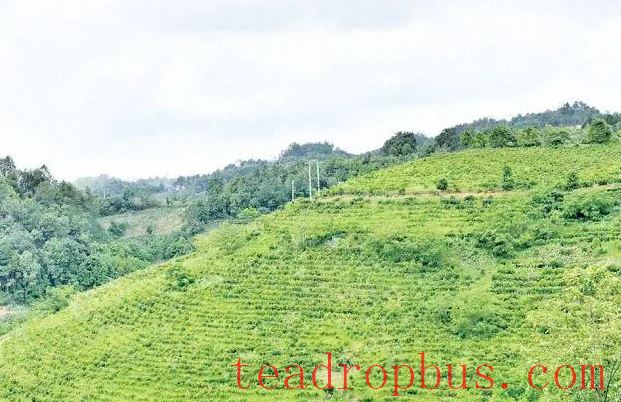In recent years, Changning County has adopted a variety of measures to promote high-quality development in its Tea industry, focusing on establishing “Changning Black Tea” as a world-renowned brand. The industry's scale continues to grow, with a total tea production of 29,800 tons and a comprehensive tea industry value of 6.7 billion yuan in 2025. The county's efforts to connect farmers with the industry have been significant, involving 49,600 households and 187,500 people in tea cultivation, with an average income per tea-growing household of 31,746 yuan.

Changning County is the only region in China officially registered and recognized as the “Thousand-Year Tea Village.” It has been listed as one of the four major high-quality tea bases in China, one of the top ten ecological tea-producing counties, a demonstration county for producing high-quality black tea, a demonstration county for tea science and technology, one of China's top 100 tea counties, and one of the origins and birthplaces of tea trees worldwide. Currently, Changning boasts 315,000 mu (approx. 21,000 hectares) of tea gardens, over 200,000 ancient tea trees, and 29,800 mu (approx. 1,987 hectares) of Rainforest Alliance certified tea gardens. There are seven towns with more than 10,000 mu (approx. 667 hectares) of tea gardens, three model villages with over 10,000 mu (approx. 667 hectares) of tea gardens and over 10 million yuan in annual revenue, and these efforts span across 103 villages and 1,508 village groups within the county.
Changning County has consistently prioritized the tea industry as its leading sector, continuously strengthening organizational support. It established the Changning Ancient Tea Tree Protection and Development Association to focus on the protection and utilization of ancient tea tree resources. In March 2025, it formed a tea industry leadership group responsible for formulating policies and making key decisions related to the tea industry, as well as planning its development. In June of the same year, the Changning Black Tea Industry Development Association was founded to coordinate communication among local tea enterprises and foster collective growth. In March of this year, the Changning County Tea Industry Development Center was established to oversee the integrated development of the tea industry chain, continually improving the organization level of the tea industry.
In recent years, Changning County has comprehensively focused on modern tea garden construction, continuously enhancing its green standards. It developed the “Three-Year Action Plan for High-Quality Development of the Tea Industry in Changning County (2025-2025)” to accelerate the concentrated construction of standardized, ecological, and organic tea gardens. Currently, the county has a cumulative area of 112,000 mu (approx. 7,467 hectares) of organically certified tea gardens and 1,700 mu (approx. 113 hectares) of green food-certified tea gardens. It has built 48 organic tea bases and implemented a cooperative model involving the government, associations, enterprises, cooperatives, and farmers, continuously fostering the growth of market entities. To date, the county has cultivated 706 tea enterprises, 657 primary processing facilities, 42 tea enterprises with Food Production Licenses (SC certificates), 111 ancient tea tree enterprises, 68 tea cooperatives, and eight model family farms at the municipal level or above. Among them, there is one national-level leading enterprise, six provincial-level leading enterprises, and eight municipal-level leading enterprises.
In terms of public brand promotion, the county has registered 499 tea-related trademarks, cultivating well-known brands such as “Changning Red,” “Wenlong,” and “Longrun.” It focuses on developing two public brands: “Changning Black Tea” and “Thousand-Year Tea Village.” It revised and improved the branding guidelines, usage scope, approval procedures, and entry-exit mechanisms, guiding companies that meet local standards to use the public brand, thus increasing product value-added and industrial competitiveness. Additionally, it organized promotional activities such as “Changning Invites You to Pick Tea” and “Tea Industry Skills Competition,” effectively raising brand awareness. In 2025, “Changning Black Tea” ranked fourth nationally and first in Yunnan in the National Geographic Indication Black Tea Brand Value Ranking with a value of 8.569 billion yuan. Thirteen SC-certified enterprises in the county use the “Changning Black Tea” geographical indication certification mark, and eight “Changning Black Tea” stores have been established in cities like Beijing, Shenyang, and Kunming.
To strengthen the cultivation of scientific and technological talents, Changning recently hired 11 renowned tea experts from institutions such as the Chinese Academy of Sciences, the Chinese Academy of Agricultural Sciences' Tea Research Institute, China Agricultural University, and Yunnan Agricultural University to serve as technical advisors for the tea industry. It established two expert workstations, including the “Young Yangtze Scholar” Zeng Liang Expert Workstation and the Yunnan Tea Science Academy Liang Mingzhi Expert Workstation. It conducted ten training sessions, nurturing one national agricultural technical expert, 36 local tea experts, and over 1,700 rural tea-applicable talents.
In recent years, Changning County has actively improved models for order-driven, profit-sharing, shareholding cooperation, and other benefit-sharing mechanisms, continuously raising the overall income of tea farmers. In 2025, the average income per tea farmer reached 8,406 yuan, benefiting around 6,000 people in nearby areas through local employment opportunities, with an average household income increase of 2,300 yuan. Tea enterprises facilitated employment for over 2,000 people in surrounding areas, with an average household income increase of 3,600 yuan. Changning Xieer Tea Products Co., Ltd. adopted a “Party organization (cooperative) + enterprise + tea farmer” benefit-sharing mechanism, directly increasing the average income of tea farmers by 3,800 yuan.
[By Li Jianguo, Yang Yanpeng, Yang Qiuxia]